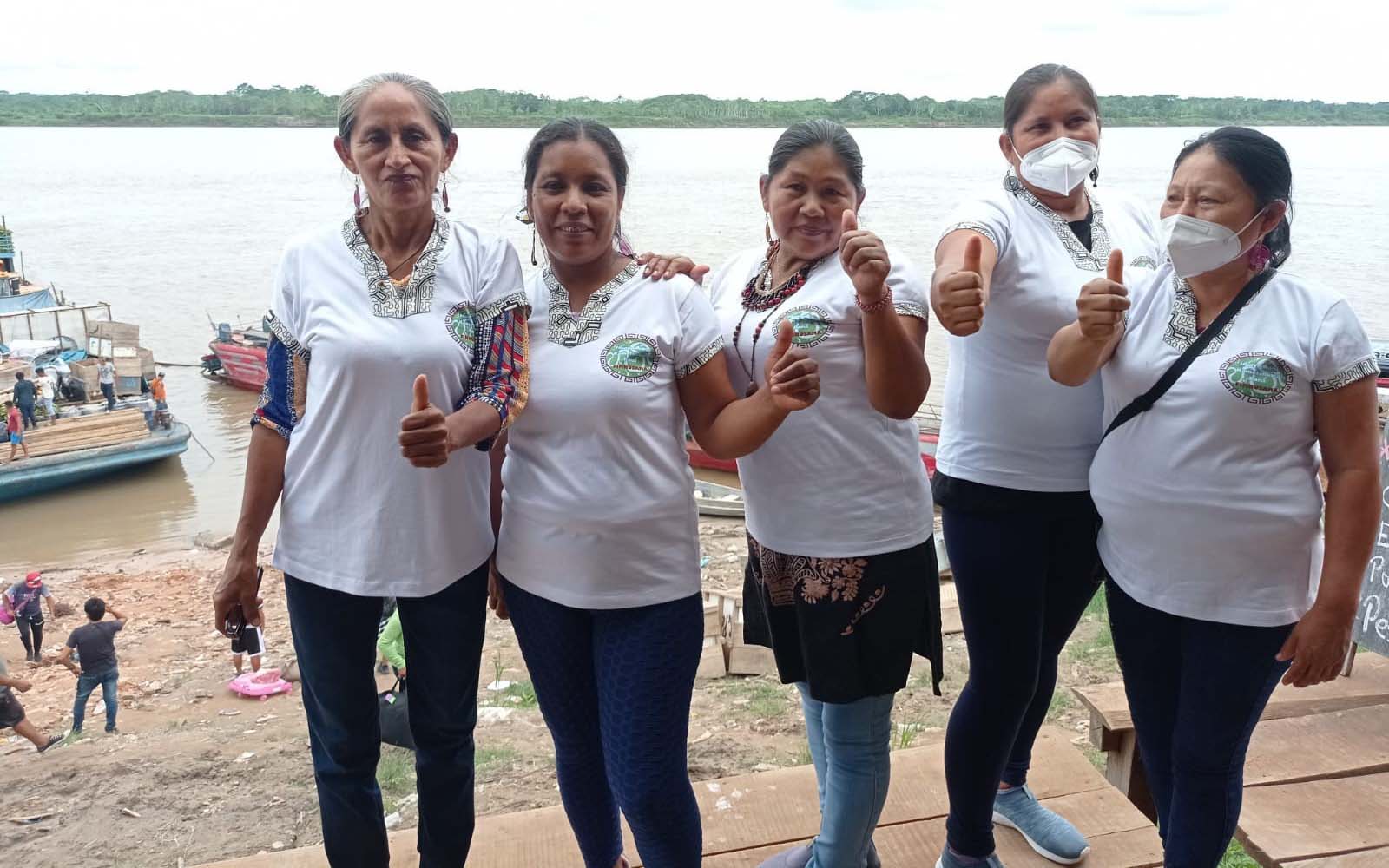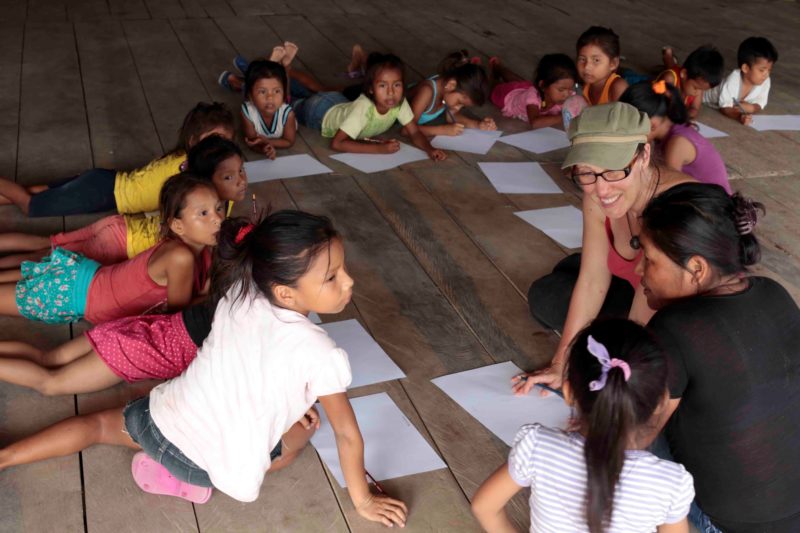Fighting for river rights, connecting with the sacred
Story

Photo credit: Huaynakana, Kukama Women’s Federation
Volunteer’s work with Indigenous women’s organization in Peru provides deep learning into environmental activism and connection with the natural world
For the Kukama people in the Amazon region of Peru, the Marañón River is a living, breathing being that is wholly connected to every aspect of their lives, both practical and spiritual.
The river is the focal point for everyday activities – it is where they fish for food and collect drinking water, where they bathe and wash, relax and swim, and where their children play.
This deep connection to the river, and to the river spirits that follow its flow, propels the Kukama to fight for it, after decades of contamination have destroyed its fragile ecosystem and fisheries, and threatened its future.
Stephanie Boyd, a volunteer with Cuso International in Peru, is helping the Kukama people in this fight, and on other projects, working with them through her role as media advisor with the Instituto de Defensa Legal (IDL), a legal aid organization based in Lima and Cuso International partner.
Drawing on her decades of experience as a journalist and filmmaker, and several volunteer placements, Stephanie specifically supports Huaynakana Kamatahuara kana, the Kukama Women’s Federation, a group of women leaders who banded together many years ago and have worked on issues affecting their communities, including violence against women and environmental protection. The Kukama Women’s Federation represents 28 Indigenous communities along the Marañón River, in the district of Parinari in Loreto province. She also works with Radio Ucamara, an Indigenous radio station that reaches thousands of listeners along the Marañón River and provides outreach and support to Indigenous communities.
“The Kukama live on the banks of the Marañón River. They gather fruit, they fish, and they live sustainably off the land. They plant some crops,” says Stephanie, who has lived in Peru since 1997 when she took her first Cuso International placement working with Latin America Press in Lima.

Volunteer Stephanie Boyd along with Mari Luz Canaquiri, President of the Kukama Women’s Federation, during a storytelling and art workshop. Photographer: M. Araoz/Quisca
“The women found that they were being ignored by the general Indigenous peoples’ federations, so they created the Kukama Women’s Federation about 20 years ago. It began as a club and officially became the Kukama Women’s Federation two years ago … During my first placement with IDL (in 2017), this was one of the things that we worked on with them, helping them become a formal entity.”
In her current role, which began in 2020, Stephanie works with the lawyers through IDL and provides technical support to the Women’s Federation, helping them with video and film production, media articles, and other communications tools, so they can share their stories and effectively influence policymaking and bolster support for the changes they seek to make in their communities.
“I’ve seen the women, the members of the Women’s Federation, really grow and become empowered during the project. They started the Women’s Federation because the male leaders wouldn’t listen to them, and now they’ve been successful in filing three legal demands related to protecting their river,” says Stephanie. “And they won one of them, which was a legal demand that says that the regional and local governments have to invest a certain percentage of the profits they receive from the oil industry in community development projects.”
Another legal action, supported by IDL and Cuso International, was filed in a Peruvian court in September 2021. The Women’s Federation is asking that the Marañón River be recognized as a legal person with rights, including the right to exist, to flow, to live free from contamination, to feed and be fed by its tributaries, and to be protected, preserved, and restored. The legal action follows similar lawsuits in New Zealand and in Canada that protect the rights of rivers. (A short film produced by the Women’s Federation, with Stephanie’s support, highlights the legal action and the Kukama’s deep connection to the river.)
“The support from IDL has been of great importance for Huaynakana. We would not have been able to present the legal cases without IDL,” says Mari Luz Canaquiri, President of the Kukama Women’s Federation. “Stephanie’s film work has empowered us because now all the women on our board speak well and can defend themselves in public. This really helped me a lot.”
For Stephanie, working with the women has been a deep learning experience that has given her the opportunity to reflect on different modes of storytelling and the rituals and sacred connections the Kukama hold within their communities and to the natural world.
“It’s really made me see things in a different way. Before I started working with the Kukama people, I would have defined myself as an environmental and human rights journalist, and I came at stories from an environmental and scientific perspective,” she says. “Working with the Kukama has added an extra dimension. The environmental part is still there and very strong, but I now think more about humans’ connection to what is sacred and how humans protect what we love and what we believe is sacred. I think more about how we’ve lost that sacred connection to water and to our environment, and how important it is for us to get that back.”
When working with the women on telling their stories, Stephanie says she is simply a technician, supporting their vision and helping them to translate their stories into the medium of film and video.
“They are leaders of their own story, producing and directing. I, along with IDL, are simply providing the technical support and really working in a cooperative way with them,” says Stephanie.
And Mari Luz says she is determined to keep fighting. “We want to win the lawsuit and secure protection for our rivers and territory for the generations to come. We are protecting life.”